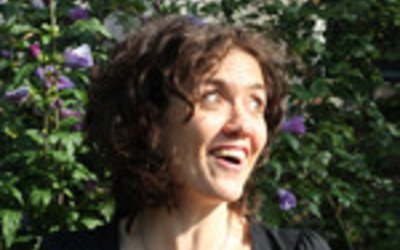
Nathalie van Haren, senior policy officer at Both ENDS, is participating in the RIO+20 conference that officially started today. Whilst the draft text presented last March was no reason for optimism, Van Haren remains hopeful that the international community will take the necessary decisions. In an interview by Vice Versa (A Dutch magazine on development cooperation) she explains why a strict focus on the environment, seen in the draft text, is problematic.
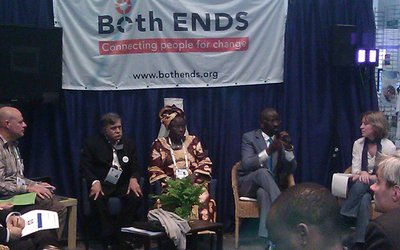
Halls filled with booths, stands, professionally set up corners, wifi-spots. Big rooms where lectures, interactive sessions and workshops are held. People from all corners of the world and from different kinds of sectors (companies, government, and social organisations) are gathering here for five days. They have one thing in common: they are talking about water. The sixth World Water Forum in Marseille is about 'solutions'. For water issues, that is. Almost a billion people worldwide have to cope without clean drinking water.
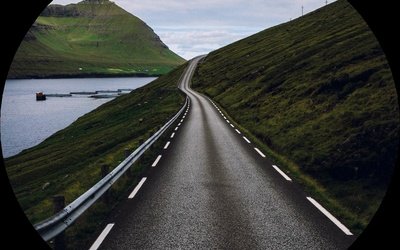
During the UNFCCC Climate Change Conference next week in Bonn, Both ENDS,Transparency International, Human Rights Watch and Carbon Market Watch will host the side event “Environmental and social accountability for results based finance - Lessons learned and ways forward’’. This event will discuss how lessons from International Financial Institutions can inform the design and operation of appropriate redress mechanisms for the Green Climate Fund and other private and public climate finance flows.
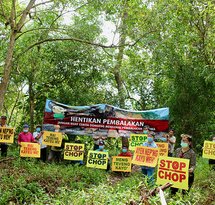
The Dutch government expects PEFC International to undertake an investigation into its own role as a forest certification system, using the Malaysian Timber Certification Scheme (MTCS). "It is about time the Dutch government takes a leading role in ensuring Malaysian timber entering The Netherlands is not associated with deforestation and human rights abuses," states Paul Wolvekamp of Both ENDS. "Considering that the Dutch government has the ambition to build 900.000 houses in the immediate future, involving massive volumes of timber, such as timber from Malaysia for window frames, builders, contractors, timber merchants and local governments rely on the Dutch government to have its, mandatory, timber procurement better organised, i.e. from reliable, accountable sources'.
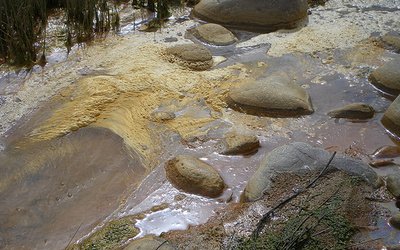
The Minister of Industry and Trade of the Czech Republic is planning to reduce access to information about the Integrated Pollution Register (IPR), which has been functioning very well for the last 6 years. With that register, the Czech Republic—unlike some other countries—has an efficient instrument to control the implementation of international conventions regarding environmental protection, such as the Stockholm Convention on Persistent Organic Pollutants (POPs).
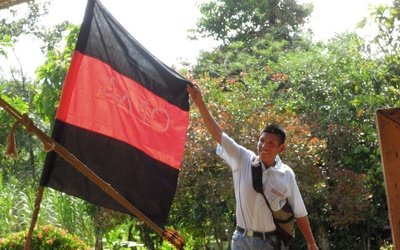
Following years of community protest the construction of the Barro Blanco dam in Panama is finally suspended. This was publicly announced by Panama’s Environmental Agency ANAM yesterday. The suspension of the project has been a request of the Ngöbe community, represented by the Movimiento 10 de Abril (M-10), for years. The dam is projected to flood homes, schools, and religious, archaeological, and cultural sites in the indigenous traditional territory, and convert the Tabasará River from a running river to a stagnant lake ecosystem. The suspension of the project is just in time, as the dam’s construction is near to completion,
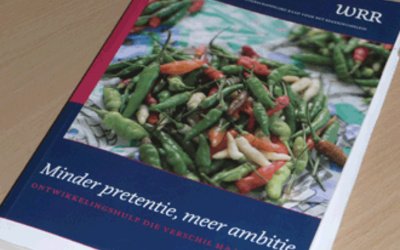
Like many in the field of international development aid, Both ENDS eagerly awaited the recent publication of the WRR (Dutch Scientific Council for Government Policy) report, "Less Pretention, More Ambition". Both ENDS was especially interested in the areas relevant to its own mission and core competencies, i.e. supporting civil society organisations working in the fields of ecological sustainability and social justice.
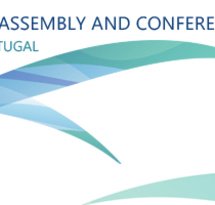
Both ENDS is co-hosting two sessions on the conference of the EFC (European Foundation Centre). This year, the conference is held from Thursday the 26th until Saturday the 28th of May in the town of Cascais, Portugal.

The Dutch news programme Netwerk will be broadcasting two items called 'Stroom stinkt!' (Power stinks) today and on Thursday about the origin of coal used in the Netherlands. Many Dutch energy companies use coal from developing countries like South Africa and Colombia to generate electricity. The working conditions in mines are often very bad and coal mining has tremendous impact on the environment and local living conditions. Farmland is destroyed and ground- and drinking water become polluted with chemicals used in the mines. Both ENDS' partners from South Africa and Colombia tell their story in the broadcast.